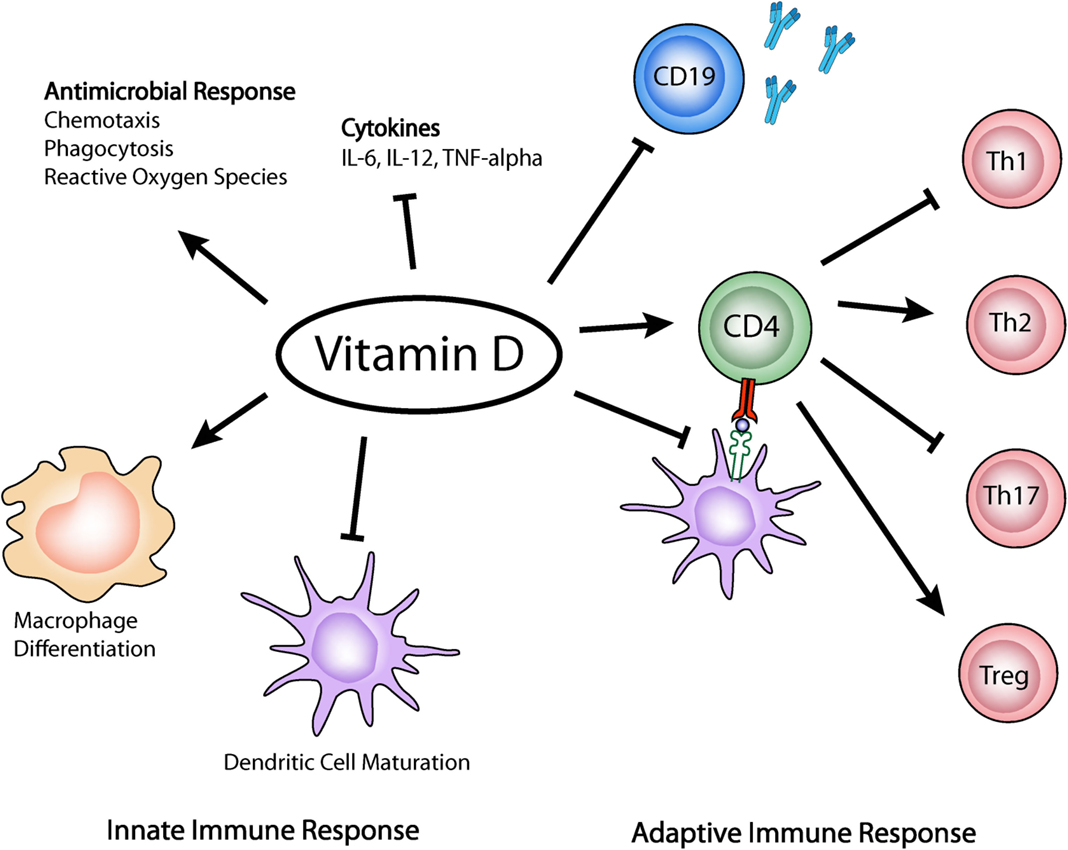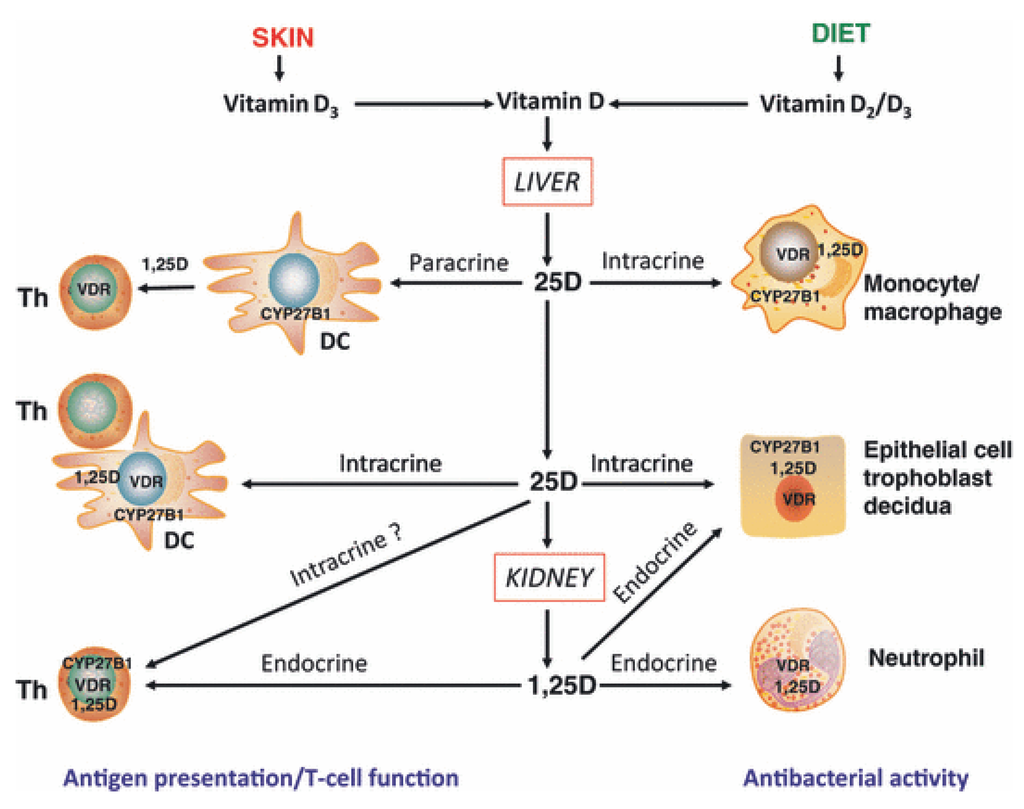Vitamin D & Immune System: The Ultimate Guide
Could a single vitamin hold the key to unlocking a stronger immune system? The answer, backed by a wealth of scientific evidence, is a resounding yes: vitamin D plays a crucial, multifaceted role in bolstering our body's defenses against illness.
The intricate dance between vitamin D and the immune system is no longer a matter of speculation, but a well-documented reality. Numerous studies have illuminated this relationship, revealing that vitamin D isn't merely a regulator of bone health; it is a potent modulator of immune function, influencing both the innate and adaptive branches of our defense mechanisms. Overwhelming evidence from in vitro studies showcases vitamin D's physiological role in immune regulation, with immune cells displaying modulated responses when exposed to pharmacological doses of vitamin D metabolites. The implications of vitamin D deficiency have become increasingly clear in recent years: a deficiency appears to make individuals more susceptible to infection, a vulnerability exacerbated in those genetically predisposed.
| Aspect | Details |
|---|---|
| Key Player | Vitamin D (specifically, its active form, calcitriol, also known as 1,25(OH)2D) |
| Primary Role | Immune system modulation and regulation, impacting both innate and adaptive immunity. |
| Major Functions |
|
| Target Cells | Macrophages, dendritic cells, NK cells, ILCs, T lymphocytes, B lymphocytes, and neutrophils. |
| Impact of Deficiency | Increased susceptibility to infection and heightened autoimmune activity. |
| Sources |
|
| Receptor | Vitamin D Receptor (VDR), found on various immune cells. |
The immune system, a complex network of cells and processes, tirelessly works to protect our bodies from foreign invaders. It distinguishes between "self" and "non-self," mounting a defense against harmful organisms while maintaining tolerance to our own tissues. Vitamin D, in this context, acts as a key player, influencing both the innate and adaptive arms of the immune response. At the innate level, macrophages and dendritic cells synthesize 1,25-dihydroxyvitamin D (1,25D), which stimulates the production of antimicrobial proteins like cathelicidin while also reducing intracellular iron levels. These mechanisms are vital for fighting off pathogens within macrophages. The immunomodulatory activity of 1,25(OH)2D has been well-established for years, yet research continually expands our understanding of the ways vitamin D shapes the immune response.
- Movie Search Issues Solutions We Did Not Find Results
- Kannada Movies 2023 Movierulz Top Grossers How To Download
Calcitriol, the active form of vitamin D, emerges as a potent regulator of the innate immune system. Vitamin D and 1,25(OH)2D3 work together to fine-tune the innate immune response, as numerous reports have correlated lower vitamin D levels with diminished immune function and increased susceptibility to illness. The regulatory influence of this molecule extends to the innate immune system, affecting macrophages, dendritic cells, NK cells, and ILCs, highlighting its role in the pathophysiology of many diseases. The simple answer to enhanced immunity, then, is vitamin D.
Vitamin D's effects extend beyond the innate immune response, influencing the adaptive immune system. Cells of the immune system, including macrophages, dendritic cells (DCs), T and B cells, all express the necessary enzymes (CYP27A1 and/or CYP27B1) to convert 25(OH)D to the active 1,25(OH)2D form. This active form then interacts with the vitamin D receptor (VDR) on immune cells in an autocrine or paracrine manner, modulating their activity. This underscores the pervasive influence of vitamin D across the immune landscape.
The bacterial infection triggers a cascade of immune responses, and vitamin D is right there as a central component. Vitamin D's role in this scenario is multifaceted: it is crucial for the local production of antimicrobial peptides (AMPs) through the 1,25(OH)2D/VDR complex. It also contributes to the regulation of calcium and phosphate metabolism, maintaining a healthy, mineralized skeleton. Moreover, vitamin D is known as an immunomodulatory hormone, reflecting its broad impact on physiological and pathological processes. Epidemiological evidence consistently indicates a significant correlation between vitamin D status and immune function.
- Kevin Whately Stroke Awareness His Impact On Fans Latest News
- Missing Mothers Warmth Chapter 3 Jackerman Find Insights Here
The impact that vitamin D has on the immune system is a prime example of the broad spectrum of actions that vitamin D has on physiological and pathological processes. Although initially recognized for its role in bone and mineral homeostasis, the influence of vitamin D on the immune system demonstrates its reach far beyond skeletal health. Current evidence strongly indicates that vitamin D regulates both innate and adaptive immune responses.
The synthesis of vitamin D in the skin through exposure to UVB radiation is the primary source of vitamin D in humans, with dietary sources playing a minor role. Cells of the immune system, like macrophages, neutrophils, T lymphocytes, dendritic cells, and B lymphocytes, are all targets of vitamin D. Vitamin D is thus involved in the regulation of innate immunity, enhancing the body's defense against microbes and other pathogens, as well as modulating the adaptive immune system through direct actions on immune cells.
The engagement between vitamin D and the immune system is undeniably strong. Mechanisms are in place that are important for promoting antimicrobial responses to pathogens in macrophages and for regulating the maturation of immune cells. Many immune system cells, such as monocytes, macrophages, DCs, and B and T lymphocytes, possess the capacity to express CYP27B1, the enzyme responsible for converting 25(OH)D to 1,25(OH)2D. This local conversion allows for a direct, targeted influence on immune cell function.
The relationship between vitamin D and the immune system is multifaceted, involving intricate mechanisms that span both the innate and adaptive immune responses. This has led to a surge in research into its relationship with various health outcomes, including autoimmune disorders and infectious diseases.
For those seeking to optimize their immune function, it is worth considering these nutrients as well, in addition to vitamin D: vitamins C, B6, and E, along with zinc and selenium. Vitamin C is a well-known immune system booster, and these nutrients, when combined, offer a comprehensive approach to supporting your bodys defenses. This is a holistic strategy, that may be worth discussing with your doctor, to ensure a robust and resilient immune system.
Studies into the intricate relationship between Vitamin D and the immune system are constantly being updated. For further reading, you can consult the following resources:
- NCBI (National Center for Biotechnology Information) - Provides access to a wealth of research articles and data regarding Vitamin D and immunity.



Detail Author:
- Name : Prof. Ambrose Kulas I
- Username : xschuster
- Email : white.saul@hill.com
- Birthdate : 2002-05-09
- Address : 62225 Reilly Place West Jack, WY 34816
- Phone : 801.417.5152
- Company : Mayer-Lebsack
- Job : Orthotist OR Prosthetist
- Bio : Aut saepe ratione voluptatibus non. Ut ipsa voluptatem pariatur sit. Quasi tenetur dicta officia reiciendis quaerat doloremque. Voluptatem et labore animi a natus. Tempore molestiae illum nihil.
Socials
linkedin:
- url : https://linkedin.com/in/barbara2920
- username : barbara2920
- bio : Ducimus et corporis aut.
- followers : 6949
- following : 608
instagram:
- url : https://instagram.com/bhoppe
- username : bhoppe
- bio : Tenetur alias atque id quis rerum. Commodi vero est temporibus dicta aut temporibus.
- followers : 6525
- following : 2502